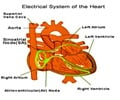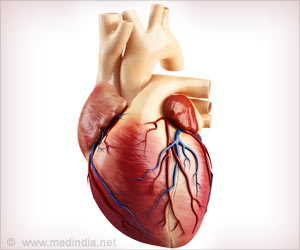Recent research sheds light on the previously unknown disease-causing mechanisms of severe arrhythmic diseases caused by CALM gene abnormalities.

‘Abnormalities in CALM genes that produce abnormal CaM protein are linked to severe arrhythmic diseases, but their disease-causing mechanisms were previously unclear. New study provides insights into their disease-causing mechanisms.
’





Using cardiomyocytes -- or heart muscle cells -- from human iPS cells and recombinant calmodulin proteins, the group studied catecholaminergic polymorphic ventricular tachycardia -- or CPVT, a rare and life-threatening genetic condition."Two patients carrying this variant in the CALM2 gene, a member of calmodulin gene family, showed not only arrhythmias but also neurological disorders, hinting at its variable pathogenicity," notes lead author Takeru Makiyama of Kyoto University.
Abnormalities in CALM Genes
In humans, CaM is encoded by three different CALM genes which produce identical amino acid sequences, with all three expressed in the heart.Makiyama's team was able to reproduce severe arrhythmia in patient-derived iPS cell models of exercise-induced CPVT with calmodulin mutations.
Using recombinant proteins, the molecular mechanism was deduced by biochemical methods. CPVT-associated CaMs were found to dominantly bind to the cardiac ryanodine receptor, which is the major calcium release channel in cardiomyocytes.
Advertisement
"Future evaluation of the efficacy of anti-arrhythmic drugs in iPS cell models will help establish precision medicine for CaM-related CPVT patients."
Advertisement














